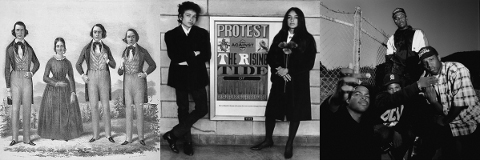Revolutions Per Century: A Brief History Of American Protest Music
A Brief History Of American Protest Music


From left, the Hutchinson Family Singers, Bob Dylan and Joan Baez and N.W.A








